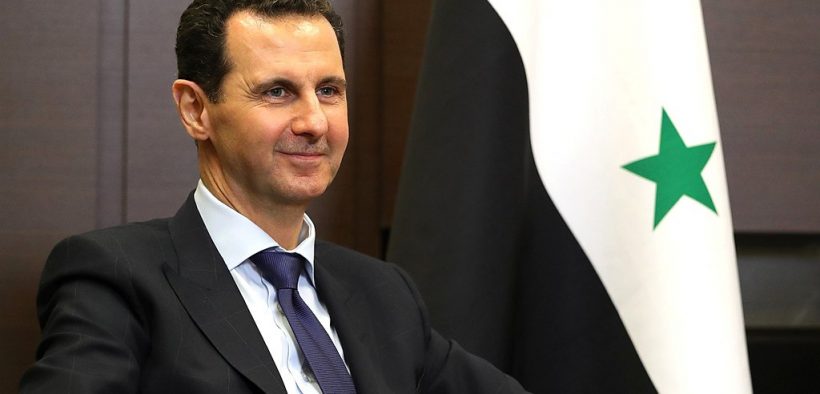HRW Report: Syria’s Counterterrorism Law Robs People of Their Livelihood

“As with other legal instruments, Syria is using Decree 63 to authorize abusive and arbitrary practices that rob people of their very livelihoods.”
In a statement released Tuesday, Human Rights Watch (HRW) expressed concern over what the organization termed a collective punishment policy practiced by Syrian President Bashar al-Assad.
The statement accuses Syria of casting too broad a net when it adopted the policy of freezing assets and funds owned by Syrians, who the Syrian government accuses of carrying out terrorist activities.
“The Syrian government is punishing entire families of people placed arbitrarily on a list of alleged terrorists by freezing their assets,” Human Rights Watch said in the statement.
HRW called on the Syrian ministry of finance to reconsider the 2012 Counterterrorism Law. Decree 63, issued back in 2012 in the middle of Syria’s civil war, gives the Finance Ministry the power “to provide permission to freeze the assets of people pending investigation of their crimes as suspected terrorists under Syria’s Counterterrorism Law of 2012, even where they have not been charged with any crime,” according to HRW.
Counterterrorism Law Violates Property and Is ‘Collective Punishment,’ HRW Says
Based on research and interviews conducted by HRW, the human rights organization says the ministry’s implementation of the provisions of the Counterterrorism Law violates the people’s property and amounts to collective punishment.
Lama Fakih, acting Middle East Director at HRW, said that the law in question demonstrates how threatened the Syrian government is by the mere expression of humanitarian activism and dissent. She called on Syria to refrain from using the Counterterrorism Law arbitrarily or as a collective punishment.
She also maintained that the law also contravenes Syria’s stated intent to promote the return of Syrians who fled the Arab Republic amidst the civil war.
HRW said it spoke to four people affected by the Counterterrorism Law, the relative of another and a former land registration employee. HRW also examined a list circulated online of hundreds of people whose assets have been frozen under the Counter-terrorism Law of 2012. The names included those of wives, children and even parents, and the lists were dated from 2016 to 2018. HRW has yet to verify them.
The individuals HRW spoke to involved cases of former residents of Eastern Ghouta, Aleppo and the Damascus countryside, locations government forces had retaken from opposition armed groups between 2014 and 2019.
According to the testimonies collected by HRW, financial assets were seized when the targeted individuals tried to access, register or conduct a transaction involving their property.
“I was not informed of this decision. I found my name on one of the lists circulated by Zaman al-Wsl [one of the media outlets]. My name, and my father’s. We lost a house, a car, and a factory,” one person told HRW, wanting to remain anonymous.
‘Decree Also Violates Property Rights’
The majority of people who were interviewed by HRW told the organization that they had taken part in peaceful demonstrations, but said they have never taken up arms against the Syrian security forces. However, HRW was not able to verify all of the claims.
“By allowing the government to seize individuals’ property without due process or notice, the decree also violates property rights which are protected under Article 15 of the Syrian constitution and international law,” HRW’s statement said.
It further noted that the Syrian government should provide specific reasons for including people on its list of alleged terrorists or remove them from the list and unfreeze their assets.
“As with other legal instruments, Syria is using Decree 63 to authorize abusive and arbitrary practices that rob people of their very livelihoods,” Fakih said. “So long as its laws and practices violate people’s rights, Syria will not be safe or stable.”
Since 2011, the Arab Republic of Syria, home to nearly 19 million residents, has endured a civil war that was sparked by mass protests demanding social and economic reforms.
Since then, hundreds of thousands have been killed and injured, while hundreds of thousands more have been displaced. In recent years, Russia became a key ally for the Syrian regime, intervening in the war and helping Syria defeat the armed opposition groups.














So are you denying the role plaued by wealthy citizems of the Gulf States in both funding and arming members of Al Qaeda of Iraq as well as street thugs to begin an uprising in Homs, or the transfer of huge stores of munitions from both Salaphi extremists in Libya as well as the IDF to Al Nursa, Al Qaeda, and DAESH in Syria?